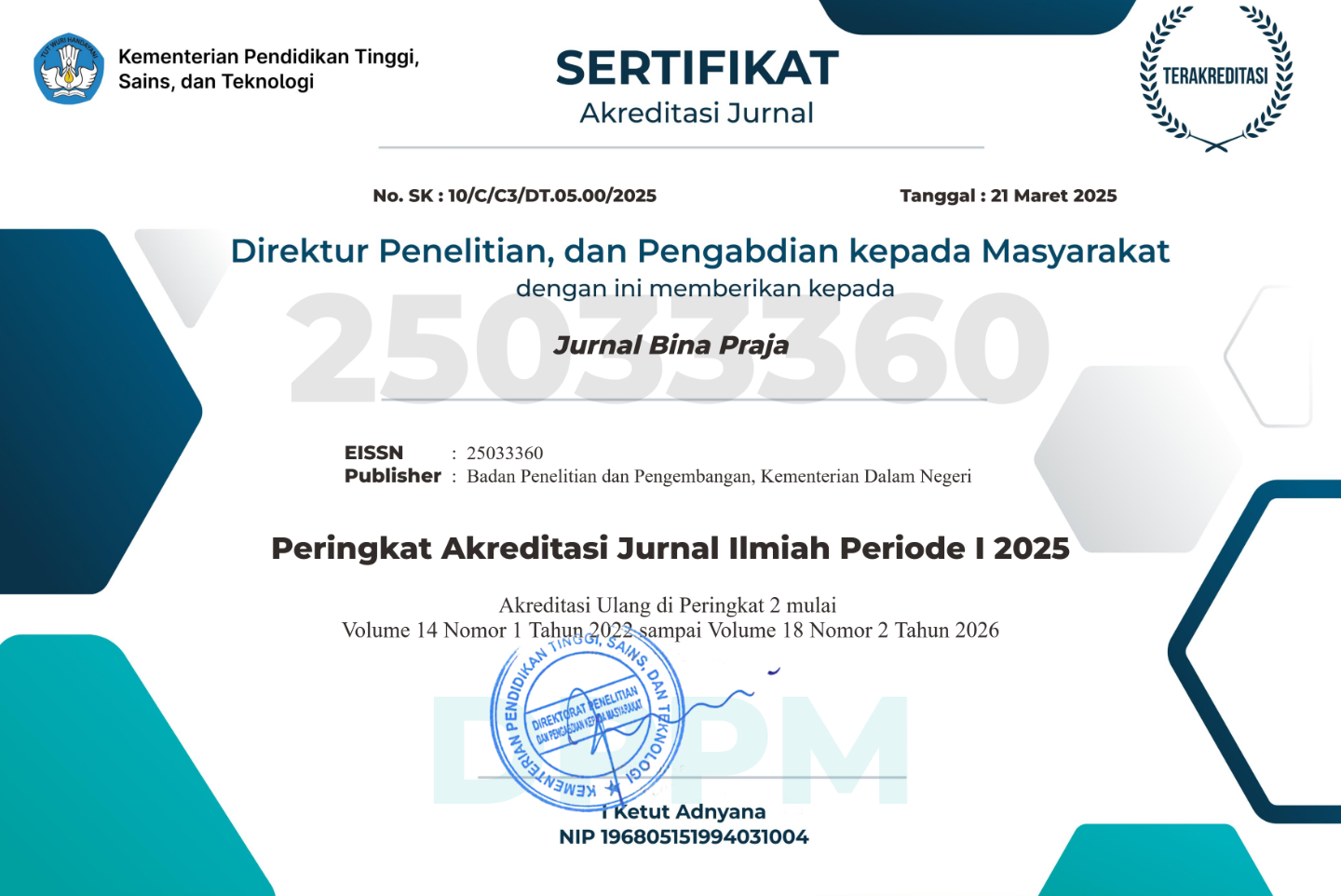Money Politic vs Political Marketing
(Case Study: Legislative Election of the Pringsewu District Legislative Council Members for the 2019-2024 Period)
DOI:
https://doi.org/10.21787/jbp.12.2020.125-136Keywords:
Keywords: money politic, political marketing, legislative electionsAbstract
The meaning of "sovereignty is in the hands of people" namely that people have sovereignty, responsibilities, rights, and participatory political obligations to democratically elect a leader who can form a government to take care of and serve all levels of society, as well as electing people's representatives to oversee the running of the government. However, the phenomena that occur are democratic parties, presidential elections, elections, and legislative elections are always colored by systemic money politics. This research using the quantitative method. Primary data were obtained by survey. The writer then describes the public opinion about the Pringsewu District Legislative Council Members' election for the 2019-2024 period on political marketing and money politics. The results showed that 40.37% of voters gave support to legislative candidates for reasons of money.
Downloads
References
Aspinall, E., & Sukmajati, M. (Eds.). (2018). Electoral Dynamics in Indonesia: Money Politics, Patronage and Clientelism at the Grassroots. NUS Press Pte Ltd. https://doi.org/10.2307/j.ctv1xxzz2
Brusco, V., Nazareno, M., & Stokes, S. C. (2004). Vote Buying in Argentina. Latin American Research Review, 39(2), 66–88. https://www.jstor.org/stable/1555401
Djuyandi, Y., & Herdiansah, A. G. (2018). Political Participation of Youth in the West Java Regional Election (Pilkada) in 2018. Jurnal Bina Praja, 10(2), 195–207. https://doi.org/10.21787/jbp.10.2018.195-207
Estlund, D. (Ed.). (2012). The Oxford Handbook of Political Philosophy (1st ed.). Oxford University Press. https://doi.org/10.1093/oxfordhb/9780195376692.001.0001
Ferza, R., & Aulia, N. F. (2020). 2018 Simultaneous Regional Head Elections: Political Dowry and Policy Implication. Jurnal Bina Praja, 12(1), 11–20. https://doi.org/10.21787/jbp.12.2020.11-20
Firmanzah. (2007). Marketing Politik: Antara Pemahaman dan Realitas. Yayasan Pustaka Obor Indonesia.
Firmanzah. (2008). Mengelola Partai Politik: Komunikasi dan Positioning Ideologi Politik di Era Demokrasi. Yayasan Pustaka Obor Indonesia.
Gonzalez-Ocantos, E., de Jonge, C. K., Meléndez, C., Osorio, J., & Nickerson, D. W. (2012). Vote Buying and Social Desirability Bias: Experimental Evidence from Nicaragua. American Journal of Political Science, 56(1), 202–217. https://doi.org/10.1111/j.1540-5907.2011.00540.x
Lock, A., & Harris, P. (1996). Political marketing †vive la différence! European Journal of Marketing, 30(10/11), 14–24. https://doi.org/10.1108/03090569610149764
Muhtadi, B. (2018). Buying Votes in Indonesia: Partisans, Personal Networks, and Winning Margins [The Australian National University]. https://openresearch-repository.anu.edu.au/handle/1885/144529
Muhtadi, B. (2019). Politik Uang dan New Normal dalam Pemilu Paska-Orde Baru. Jurnal Antikorupsi INTEGRITAS, 5(1), 55–74. https://doi.org/10.32697/integritas.v5i1.413
Perdana, I. H. (2014). Analisis Political Marketing Partai Nasdem Sebagai Partai Politik Baru pada Pemilu Legislatif 2014 Menurut Kerangka Konsep Lees-Marshment. PR Dan Marketing Politik, 69–85.
Rich, R. (2017). Parties and Parliaments in Southeast Asia: Non-partisan Chambers in Indonesia, the Philippines and Thailand. Taylor & Francis.
Sherlock, S. (2009). Indonesia’s 2009 Elections: The New Electoral System and the Competing Parties (CDI Policy Papers on Political Governance). Centre for Democratic Institutions.
Sunstein, C. R., & Vermeule, A. (2018). The Morality of Administrative Law. Harvard Law Review, 131(7), 1924–1978. https://harvardlawreview.org/2018/05/the-morality-of-administrative-law/
Downloads
Published
How to Cite
Issue
Section
License
Copyright (c) 2020 The Author(s)

This work is licensed under a Creative Commons Attribution-NonCommercial-ShareAlike 4.0 International License.















